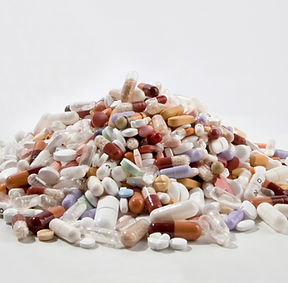Disease-causing bacteria reducing the effectiveness of common veterinary antibiotics in Oyo and Osun States, study finds
Sunday Omeike, PhD, FASLN
Monday, 2 August 2021
Antibiotics, life-saving drugs used to treat some humans and animal disease conditions, persist in the environment after usage. Their unlawful usage in veterinary service for poultries, piggeries, cattle farms, aquacultures and other livestock farms continues to increase, thereby putting strain on reliable drugs to remain effective.
One of such effective antibiotics is sulfonamides, a drug group commonly used in hospitals and farms due to its effectiveness. However, a recently published study has sounded a warning signal of their increasing ineffectiveness in Oyo and Osun States.
The study, led by Dr Abimbola Adekanmbi of the Department of Microbiology, University of Ibadan, Nigeria, and published in Gene Reports, investigated hospitals and farms in both States and revealed that sulfonamide resistant genes, tools that disease-causing bacteria possess to reduce the effectiveness of sulfonamides, are now commonplace. They were found in sewage and animal wastes of hospitals and farms, with hospital wastewater and aquaculture farms also home to these germs that have evolved.
The continuous evolution of disease-causing bacteria towards sulfonamides could lead to their transfer into humans through slaughtered animals. This could further result in an economic loss on farms, increased hospital stay, poor treatment outcome or failure, and death.

Credit: Pixabay

Graph from the study shows % resistance of Sulfonamide-resistant bacteria to other commonly used antibiotics
The multi-national collaborative study found 48 disease-causing bacteria that have evolved and relatively spread across both States.
They also found that while eight in ten disease-causing bacteria can reduce the effectiveness of two or more sulfonamide antibiotics, further indiscriminate drug usage and environmental contamination would worsen the situation.
Also, Oyo and Osun States are business hubs for farming and products, and transfer routes of these products to other regions and neighbouring countries. This could result in the further spread of evolved disease-causing bacteria to new territories via human or environmental routes.
The authors advised that the increasing evolution of disease-causing bacteria means more hotspots abound in both States and necessitate further investigations. Perhaps this could lead to societal awareness and affect future government policy.
Reference
Adekanmbi, A.O., Adejoba, A.T., Banjo, O.A., and Saki, M. 2020. Detection of sul1 and sul2 genes in sulfonamide-resistant bacteria (SRB) from sewage, aquaculture sources, animal wastes and hospital wastewater in South-West Nigeria. Gene Reports, https://doi.org/10.1016/j.genrep.2020.100742